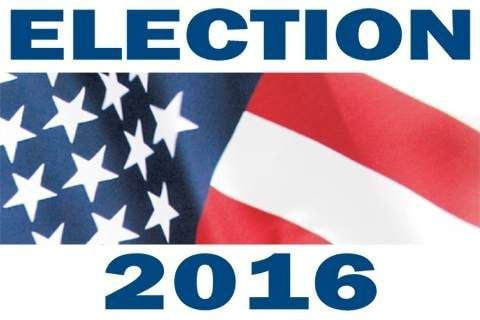Sen. Kent Leonhardt, R-Monongalia, says the West Virginia Department of Agriculture has no business being in the potato business.
Agriculture Commissioner Walt Helmick says potatoes could become a major cash crop in West Virginia ā with a nudge from the state.
Leonhardt and Helmick, who are in heated race for the commissionerās job, sparred Thursday over the state-funded potato-growing program ā called the Potato Demonstration Project.
āWeāre barking up the wrong tree here,ā Leonhardt said during a meeting with Gazette-Mail editors. āWe can make more money on an acre of basil than you can on 50 acres of potatoes.ā
Leonhardt alleged the potato project ā started under Helmickās watch ā has been a waste of taxpayer money. Leonhardt said it cost the state $178,000 to grow potatoes in 2015.
āThe figures Iām getting say the way weāre doing it is not working,ā he said. āWith our stateās financial crisis, Iām not in favor of growing potatoes at a dollar a pound.ā
Helmick defended the potato program. The Department of Agriculture owns and operates a processing plant at the former National Guard armory on Huntington. About three dozen farmers in six counties ā Cabell, Mason, Putnam, Jackson, Wayne and Lincoln ā grow potatoes and bring them to the facility, which processes a tractor-trailer load of potatoes each day.
Helmick hopes to expand the project to nine facilities that would process potatoes and other root vegetables. The production target: 350 to 400 bushels of potatoes per acre.
āThat makes us very competitive,ā he said. āWeāre an excellent state for growing food products, not only potatoes.ā
Leonhardt alleged Helmickās potato project already has lost $1.5 million.
āThat figure is absolutely wrong,ā Helmick shot back, adding that Leonhardt was using a number that included the cost of the processing plant and harvesting equipment owned by the Department of Agriculture.
Leonhardt said the state shouldnāt be subsidizing the potato program.
āI would have done it totally private,ā he said. āI donāt think we should be using taxpayer dollars to run a private industry. We should always try to do it with private industry before we do it with government.ā
But Helmick countered that his agency is just trying to jump-start a potato industry in West Virginia ā and diversify the stateās economy. Potatoes once were West Virginiaās largest cash crop. In 1927, the state had 53,000 acres dedicated to potato production, he said.
āIf private industry is going to do it, why havenāt they done it?ā Helmick asked. āSomebody has to have the leadership and step forward and say, āThis is the way were going to do it.āā
Leonhardt and Helmick also argued over the Department of Agricultureās decision to buy four breeding cows at an auction in Oklahoma earlier this year. The cattle cost $33,000.
āThereās no reason to be going to Oklahoma and buying livestock and competing against our own breeders here in West Virginia,ā Leonhardt said. āWe have the best genetics in the country in the state of West Virginia. We went to Oklahoma to buy bloodlines already found here.ā
Helmick said Mike Teets, a cattle farmer who works for the agriculture department, āknew what he was doingā when he traveled to Oklahoma to make the cattle purchase. The department keeps the breeding cows at its farm in Pruntytown.
āWe are trying to give an opportunity to a young farmer to get in the [feed cattle] business with a good bloodline,ā Helmick said. āWe intend to improve the genetics.ā
Helmick defeated Leonhardt in the 2012 election, replacing the late Gus Douglass as agriculture commissioner.
Libertarian candidate Buddy Guthrie did not attend Thursdayās meeting.
Reach Eric Eyre at ericeyre@wvgazettemail.com, 304-348-4869 or follow @ericeyre on Twitter.














